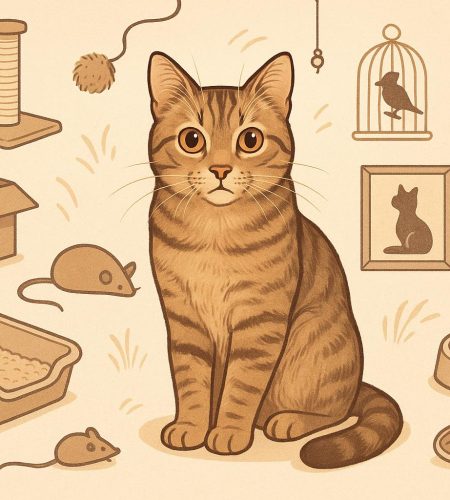Cats are fascinating, independent animals that bring companionship, comfort, and character into our homes. To provide the best care possible, it’s essential to understand their behaviours, instincts, and needs. Many cat owners assume that because cats are low-maintenance, they require minimal attention. However, to keep them healthy and happy, it’s vital to take an informed approach to nutrition, grooming, exercise, and mental stimulation.
Cats are territorial creatures, meaning they thrive in a stable environment with familiar scents and routines. Any significant change, such as moving home or rearranging furniture, can be stressful for them. Recognising subtle signs of anxiety—like hiding, over-grooming, or reduced appetite—can help you intervene early. Using pheromone diffusers and maintaining familiar scents can make transitions smoother.
Nutrition and Feeding Habits
Feeding your cat the right diet is crucial for its overall wellbeing. Cats are obligate carnivores, meaning they rely on meat for the majority of their nutritional needs. While dry food is convenient, incorporating wet food provides additional hydration, which is particularly important for cats prone to urinary tract problems.
Portion control is another key factor in maintaining a healthy weight. Obesity can lead to serious health issues such as diabetes, joint problems, and heart disease. Always follow feeding guidelines and monitor your cat’s weight through regular vet check-ups. Treats should be limited to no more than ten per cent of their daily caloric intake.
Fresh water should always be available, and many cats prefer running water. Investing in a cat water fountain can encourage them to drink more, which supports kidney and urinary health.
Grooming and Hygiene
Although cats are known for their self-grooming habits, they still need regular grooming assistance from their owners. Long-haired breeds, such as Persians or Maine Coons, are especially prone to matting and tangles, so brushing them daily can prevent discomfort. Short-haired cats benefit from weekly brushing to remove loose fur and reduce hairballs.
Dental hygiene is another often-overlooked aspect of cat care. Plaque build-up can lead to gum disease and tooth loss, so it’s important to introduce tooth brushing gradually using a cat-specific toothbrush and toothpaste. Dental treats and water additives can also support oral health.
Litter box maintenance is essential for hygiene and comfort. Clean the box daily and replace litter regularly. Cats are sensitive to odours, and a dirty litter box can cause them to avoid it altogether, leading to behavioural or medical problems.
Exercise and Mental Stimulation
Cats, especially indoor ones, need both physical and mental exercise to prevent boredom and behavioural issues. Interactive play sessions using feather wands or laser toys mimic hunting instincts and help maintain muscle tone. Scratching posts, climbing trees, and puzzle feeders all contribute to a stimulating environment.
For outdoor cats, a secure garden enclosure or harness walks can provide safe exploration opportunities. It’s important to ensure that any outdoor area is secure and free from potential hazards.
Health and Preventative Care
Regular veterinary visits are key to detecting potential health issues early. Routine vaccinations, flea and worm treatments, and dental check-ups are all essential components of preventative care. Microchipping is also recommended for all cats, even indoor ones, as it significantly increases the chances of reunion if they escape or get lost.
Spaying or neutering your cat not only prevents unwanted litters but can also reduce roaming behaviour, spraying, and the risk of certain cancers.
Creating a Safe and Enriching Home
Cats feel most comfortable in environments that cater to their natural instincts. They appreciate quiet resting spots, vertical spaces for climbing, and hiding areas for privacy. Providing scratching posts, soft bedding, and window perches allows them to express their natural behaviours while feeling secure.
If you live in a multi-cat household, ensure there are enough resources—bowls, litter boxes, and sleeping spots—for each cat. A good rule of thumb is one litter box per cat, plus one extra. This helps reduce territorial tension and promotes harmony among feline companions.
Building a Strong Bond with Your Cat
Spending quality time with your cat strengthens trust and deepens your bond. Gentle petting, soft talking, and interactive play sessions can enhance your relationship. Cats communicate through body language, so learning to interpret their cues—such as tail movements and ear positioning—can improve understanding and minimise stress for both you and your pet.
Further Guidance and Support
For those seeking more in-depth information and practical tips, you can find excellent pet care advice for cats online from reputable sources. This guidance often covers everything from dietary plans and behavioural training to medical advice and seasonal safety precautions.
Continuing to educate yourself about feline care ensures that your cat enjoys a long, healthy, and fulfilling life. As a responsible pet owner, following trusted pet care advice for cats helps you provide the best possible home environment—one where your feline companion feels secure, loved, and well understood.

